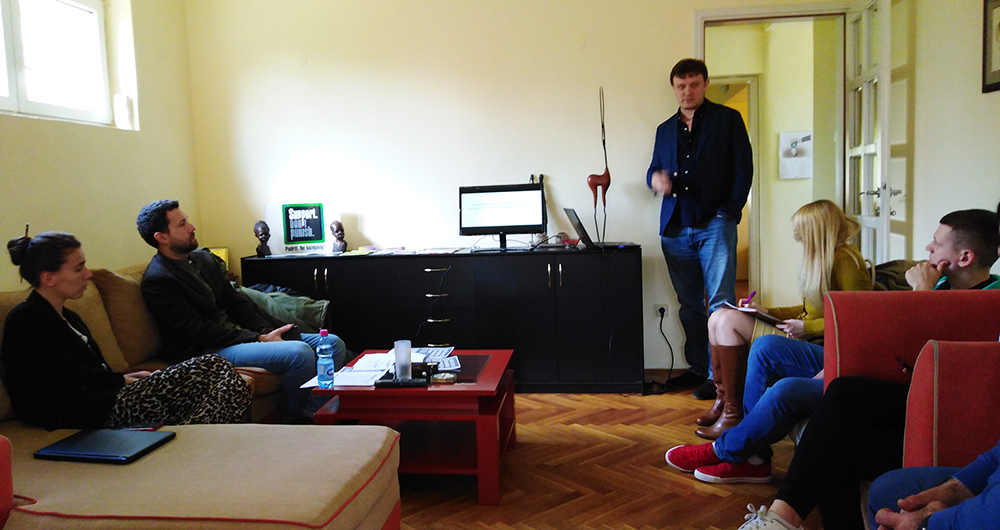As the DPNSEE project Budget Advocacy and Monitoring in countries of South East Europe funded by Open Society Foundations (OSF) through Eurasian Harm Reduction Association (EHRA) is about to come to an end in April this year, EHRA Financial Director Tatiana Fomicheva and Sustainability and Transition Adviser Ivan Varentsov visited DPNSEE on 17 and 18 April 2019. The purposes of the visit were to make an oversight of the project related documents and provide support with regard to the development of the final financial report.
 EHRA representatives had an opportunity to meet with representatives of the national coordinator organisations Margina, Juventas and Prevent and get to know better their achievements and challenges while implementing the project. It was also interesting to discuss lessons learnt, possible next steps and follow up actions. All three indicated that the main issue they faced was lack of information or very slow response to provide them by the authorities. Understanding this obstacle, an agreement was made that DPNSEE and partner organisations will propose to extend the project by September 2019.
EHRA representatives had an opportunity to meet with representatives of the national coordinator organisations Margina, Juventas and Prevent and get to know better their achievements and challenges while implementing the project. It was also interesting to discuss lessons learnt, possible next steps and follow up actions. All three indicated that the main issue they faced was lack of information or very slow response to provide them by the authorities. Understanding this obstacle, an agreement was made that DPNSEE and partner organisations will propose to extend the project by September 2019.
Our guests presented us the EHRA activities in the scope of the Global Fund HIV multi-country project, content of the workshop on human rights issues for the Balkan region planned for autumn this year and the Global Fund Community, Rights and Gender Technical Assistance Program. For this occasion, we also invited our colleagues from Serbian partner and member organisations Duga, GAJP, Timok Youth Centre and Čovekoljublje.

For our guests, we also arranged meetings with Dr Jasmina Tanasić, Head of the Department for Social Affairs at the Standing Conference of Towns and Municipalities and Primarius Dr Danijela Simić, Head of Department for HIV infection, STI, viral hepatitis and tuberculosis, Centre for Prevention and Control of Diseases, at the Institute of Public Health of Serbia “Dr Milan Jovanović Batut”.
The visit will help to better document the approach, process and results of our project as well as the lessons learnt. Documenting this our joint experience as a regional best practice and example of small grants to NGOs in recently transitioned of transitioning countries to support their sustainability and transition related advocacy activities can be of benefit to the Sustainability Bridge Funding that is about to be created by a group of international donors led by the OSF.


